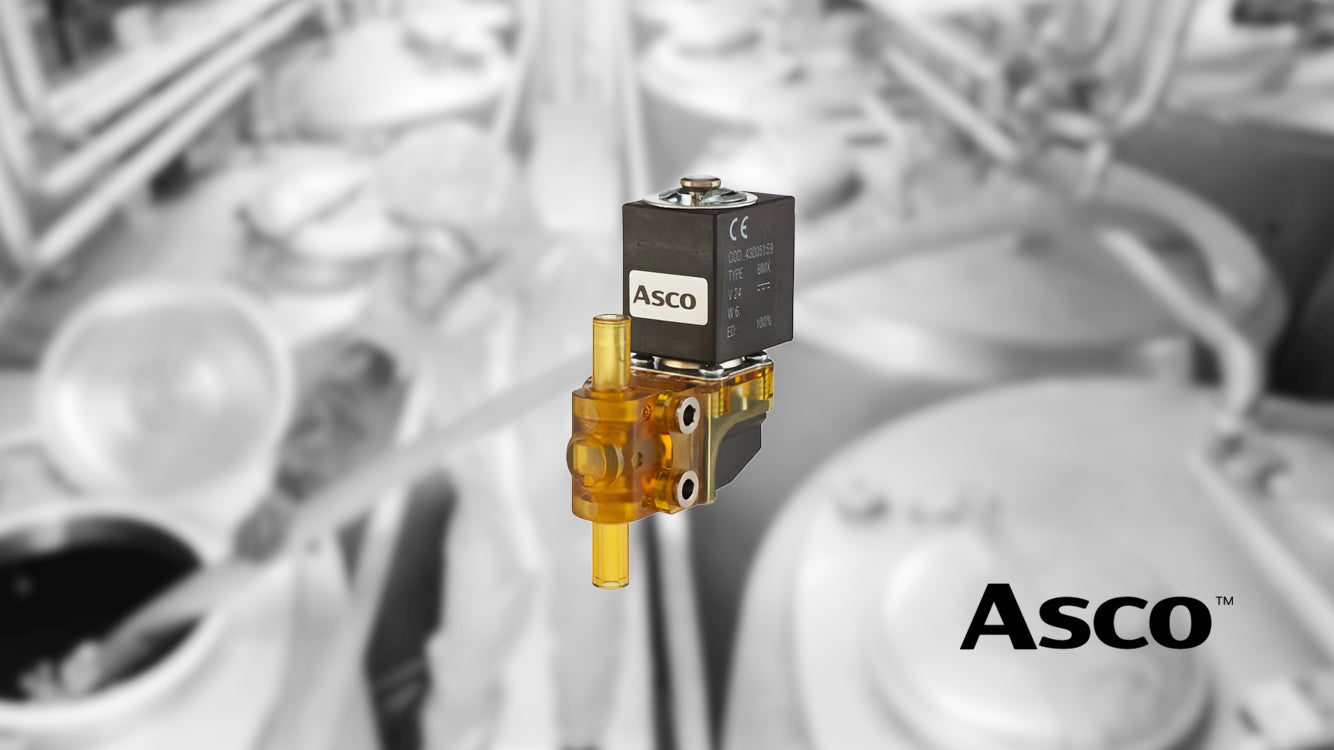In chemical manufacturing, handling corrosive media is one of the most challenging aspects of fluid control. Whether you're dealing with strong acids, alkalis, or aggressive chemical solutions, the wrong valve can lead to equipment failure, costly downtime, and even safety hazards. That’s why ASCO solenoid valves are engineered to withstand the harshest environments while delivering reliable performance.
Let’s dive into how ASCO solenoid valves provide superior material compatibility and durability for corrosive applications in chemical manufacturing.
The Challenge of Corrosive Media
- Chemical Compatibility: Many materials used in standard valves are vulnerable to corrosion and degradation when exposed to aggressive chemicals.
- Safety Risks: Leaks or failures in valves handling corrosive media can lead to environmental hazards and worker safety issues.
- Operational Downtime: Frequent maintenance or replacement due to corrosion can disrupt production schedules and increase costs.
Selecting the right solenoid valve is critical to overcoming these challenges and ensuring safe, efficient operations.
What Makes ASCO Solenoid Valves Ideal for Corrosive Media?
ASCO solenoid valves are specifically designed to handle aggressive chemicals with advanced materials and innovative features that set them apart.
1. Robust Materials for Chemical Resistance
ASCO solenoid valves are constructed using materials that resist corrosion and chemical attack, including:
- PTFE (Polytetrafluoroethylene): Known for its exceptional resistance to acids, alkalis, and solvents. PTFE is often used for valve bodies and diaphragms in highly aggressive applications.
- Stainless Steel: Provides durability and resistance to corrosion from a wide range of chemicals.
- Polyetherimide (PEI): Used in ASCO 283 series valves for handling corrosive fluids in biotechnology and chemical manufacturing.
- Polyphenylene Sulphide (PPS): Suitable for high-temperature applications involving corrosive liquids.
2. Isolated Media Pathways
ASCO solenoid valves feature designs that isolate critical internal components from the media being controlled. For example:
- Dry Armature Design: Prevents the media from contacting internal components like springs or armatures, reducing the risk of corrosion.
- Media-Separated Valves: PTFE diaphragms isolate the solenoid components from aggressive liquids, ensuring durability and preventing failures.
3. Wide Range of Configurations
ASCO offers customizable solutions tailored to specific corrosive applications:
- Seal Options: EPDM, FPM (Viton), and PTFE seals provide compatibility with various chemicals.
- Valve Body Choices: Materials like PVC, PVDF, Nylon, and stainless steel can be selected based on the chemical properties of the media.
- Flow Control Features: Adjustable flow restrictors allow precise control over media flow rates.
4. Reliable Performance Under Extreme Conditions
ASCO solenoid valves are designed to operate reliably in challenging environments:
- Temperature Tolerance: Handles temperatures ranging from -40°C to +200°C depending on the material configuration.
- Pressure Handling: Supports high-pressure applications up to 250 psi with robust construction.
- Explosion-Proof Designs: ATEX-certified models ensure safety in hazardous areas where flammable chemicals are present.
Applications of ASCO Solenoid Valves in Chemical Manufacturing
1. Dosing Systems
Precise control is essential when dosing strong acids or alkalis into chemical formulations. ASCO valves provide accurate flow control while resisting chemical attack.
2. Chemical Injection
In processes like corrosion inhibition or scale prevention, ASCO valves regulate the injection of aggressive chemicals into pipelines without compromising performance.
3. Reactor Feed Systems
Handling reactive chemicals requires reliable valves that can withstand extreme conditions. ASCO’s corrosion-resistant designs ensure safe operation during reactor feed processes.
4. Wastewater Treatment
Aggressive reagents used in pH adjustment or coagulation processes demand durable valves like those offered by ASCO.
Benefits of Using ASCO Solenoid Valves
| Feature | Benefit |
|---|---|
| Advanced Materials | Long-term resistance to corrosion and chemical attack |
| Media Isolation | Prevents internal component damage for extended valve lifespan |
| Customizable Configurations | Tailored solutions for specific corrosive applications |
| Explosion-Proof Models | Safe operation in hazardous environments |
| Temperature & Pressure Tolerance | Reliable performance under extreme operating conditions |
Why Choose HMFT as Your Partner?
At HMFT, we specialize in providing fluid-handling solutions tailored to the needs of Canadian chemical manufacturers. As authorized distributors of ASCO products, we offer:
- Expert guidance on material compatibility for your specific application
- Access to a wide range of ASCO solenoid valves designed for corrosive media
- Support with installation, maintenance, and troubleshooting
- Reliable delivery and ongoing technical assistance
Conclusion: Invest in Reliability
When handling corrosive media in chemical manufacturing, choosing the right solenoid valve can mean the difference between smooth operations and costly disruptions. With their advanced materials, innovative designs, and proven reliability, ASCO solenoid valves provide an ideal solution for managing aggressive chemicals safely and efficiently.
Ready to upgrade your fluid control systems? Contact HMFT today to learn more about how ASCO solenoid valves can enhance your operations. Let’s work together to create a solution tailored to your needs!
FAQ
Q: What types of materials are available for ASCO solenoid valves?
A: Common materials include PTFE (for highly aggressive chemicals), stainless steel (for general corrosion resistance), PEI (for biotechnology applications), and PPS (for high-temperature environments).
Q: Can ASCO solenoid valves handle high-pressure applications?
A: Yes! Many models are rated up to 250 psi, making them suitable for demanding chemical processes.
Q: Are explosion-proof models available?
A: Absolutely! ATEX-certified explosion-proof designs ensure safe operation in hazardous environments involving flammable chemicals.
Q: How do I select the right valve material for my application?
A: Our team at HMFT can help you assess your media’s chemical properties and recommend compatible materials based on your specific process requirements.
Q: Do ASCO solenoid valves require frequent maintenance?
A: No—thanks to their durable construction and isolated designs, these valves typically require minimal maintenance compared to standard options.

